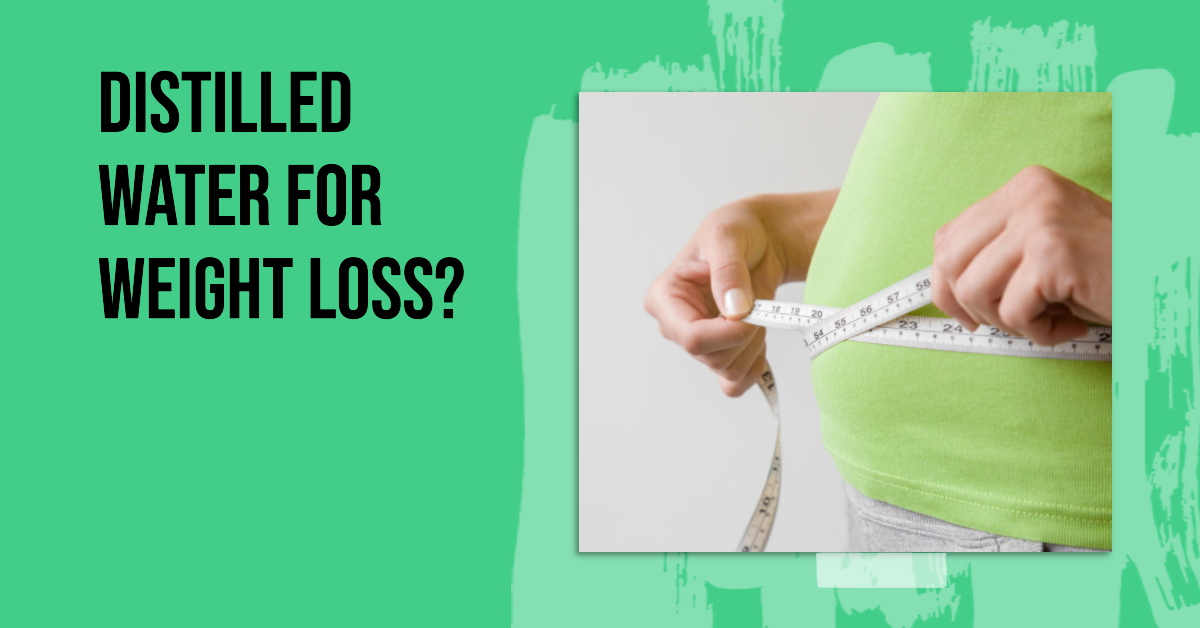In recent years, some people have begun drinking distilled water as a way to lose weight and ‘detox’ their bodies. Proponents claim that because distilled water is pure H2O with no minerals, it can help flush out toxins and promote weight loss. However, the evidence on whether a water distiller can aid weight loss is mixed, and there are some potential risks to be aware of.

How Might Distilled Water Promote Weight Loss?
There are a few proposed mechanisms by which distilled water could potentially promote weight loss:
- Low mineral content: Since distilled water has no minerals, it has zero calories. Switching from higher-calorie drinks like juice or soda to distilled water can reduce overall calorie intake.
- Satiety: Some evidence suggests drinking water before meals can increase satiety and reduce calorie intake during the meal. Distilled water may have a greater satiating effect.
- Flush out toxins: Advocates claim distilled water’s purity helps flush out toxins, which facilitates weight loss. However, there is little evidence that ‘detoxing’ leads to substantial weight loss.
Potential Risks of Drinking Distilled Water
While the weight loss benefits are uncertain, there are some potential risks to drinking only distilled water:
- Lack of minerals: Distilled water has completely removed all minerals, including electrolytes like sodium, calcium and magnesium. If you’re drinking only distilled water long-term, where possible you should be remineralising your distilled water either by simply adding some lemon juice or Himalayan salt, or adding a trace mineral supplement.
Recommendations on Drinking Distilled Water
Given the lack of evidence for weight loss and potential long-term risks, here are some recommendations on drinking distilled water:
- Don’t rely on it solely. Drink distilled water in moderation, not as a replacement for all other beverages. Get minerals from food and other more balanced fluids.
- Monitor your mineral intake. If drinking distilled water, be vigilant about getting sufficient minerals like calcium and magnesium from foods or supplements. Consult a doctor if concerned.
- Use it short-term only. For healthy individuals, occasional short-term use of distilled water is unlikely to cause harm. But extended use could potentially lead to mineral deficiencies.
- Talk to a doctor. As with adopting any unconventional habit, discuss distilled water with your physician, who can recommend if it is appropriate for your individual health needs.
There is currently insufficient evidence showing drinking distilled water can directly lead to substantial weight loss. And while moderate distilled water consumption is likely safe for most healthy adults, excessive long-term intake could potentially lead to health issues caused by mineral deficiencies and hypotonic hydration. As such, those considering increasing their distilled water intake for weight loss reasons should exercise caution. Speak to your doctor first, and focus predominantly on proven weight loss fundamentals like diet, exercise, and sleep. While drinking more distilled water in place of high-calorie beverages may aid weight loss through fewer calories, it should not be viewed as a magic bullet for weight loss on its own. Moderation and mineral supplementation are key if you choose to include them in your diet.




